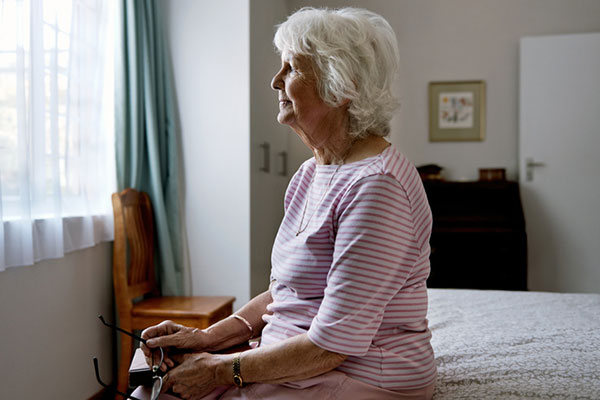Waspi women set to receive compensation under Labour
A Labour government would compensate women born in the 1950s who have been hit by the rise in the state…
22nd November 2019 11:58
by Stephen Little from interactive investor
A Labour government would compensate women born in the 1950s who have been hit by the rise in the state pension age, and freeze the state pension age at 66.

Labour has promised ‘recompense’ to women born in the 1950s hit by changes to the state pension age.
In its 2019 manifesto, the Labour Party pledges to compensate women born in the 1950s for the failure of the government to adequately notify them about changes in the state pension age.
- WASPI blog: my £12,000 Labour handout should go to the NHS
- Labour’s WASPI pledge: how much compensation will be received and how will it be funded?
- Your essential guide to: the state pension and how the goalposts will shift in future
- Stay in the loop: sign up to our newsletter
- General Election 2019: What will Labour's policies do for your personal finances?
The manifesto reads: “Under the Tories, 400,000 pensioners have been pushed into poverty and a generation of women born in the 1950s have had their pension age changed without fair notification.
“This betrayal left millions of women with no time to make alternative plans – with sometimes devastating personal consequences.
“Labour recognises this injustice and will work with these women to design a system of recompense for the losses and insecurity they have suffered.”
The Pensions Act 1995 increased the state pension age for women, bringing the qualifying age in line with men by 2020.
The government then decided to accelerate its plan to increase the state pension age in 2011.
The state pension age for women was raised last November to 65 – the same as men – for the first time.
It has been steadily rising from 60 since 2011 and in 2020 the age for both sexes will rise to 66.
Campaign groups such as BackTo60 and Women Against State Pension Inequality (Waspi) argue that many women born in the 1950s were not sufficiently warned of the changes and have suffered financial hardship as a result.
Debbie de Spon, a spokesperson for Waspi, welcomed the announcement but said that a clear framework on how it would be implemented needed to be developed.
She says: “As a campaign, we are calling for a bridging pension to provide an income from age 60 to the new state pension age, combined with compensation for those women affected who have already reached their new state pension age.
“We are pleased to see the Labour Party recognise the current hardship and make commitments to resolving it, however, this needs to go further.”
The Liberal Democrats have also pledged to compensate women born in the 1950s over state pension increases, while the Green Party has proposed the delivery of a Universal Basic Income.
Pledge on pension age rises
As part of its manifesto, Labour has also pledged to keep the state pension at 66 and not raise it in the future.
After the current state pension age rises to 66 next year, it is then due to increase to 67 by 2028, and 68 by 2039.
Labour has also promised to maintain the triple lock, guaranteeing new state pension increases by either 2.5%, average wage growth, or inflation.
However, pension experts have criticised the policies for the impact they would have on taxpayers.
Tom Selby, senior analyst at AJ Bell, says freezing the state pension age is a “gargantuan promise” from Labour with “enormous ramifications for those affected, society as a whole and long-term government spending”.
He says: “It’s also important to remember that planned state pension age increases to 67 and 68 are not just based on the last few years’ data, but decades of life expectancy improvements.
“If state pension increases are to be permanently shelved, Labour needs to explain who will pay the extra cost in the long term.”
This article was first written by our sister magazine Moneywise.
This article was originally published in our sister magazine Money Observer, which ceased publication in August 2020.
These articles are provided for information purposes only. Occasionally, an opinion about whether to buy or sell a specific investment may be provided by third parties. The content is not intended to be a personal recommendation to buy or sell any financial instrument or product, or to adopt any investment strategy as it is not provided based on an assessment of your investing knowledge and experience, your financial situation or your investment objectives. The value of your investments, and the income derived from them, may go down as well as up. You may not get back all the money that you invest. The investments referred to in this article may not be suitable for all investors, and if in doubt, an investor should seek advice from a qualified investment adviser.
Full performance can be found on the company or index summary page on the interactive investor website. Simply click on the company's or index name highlighted in the article.